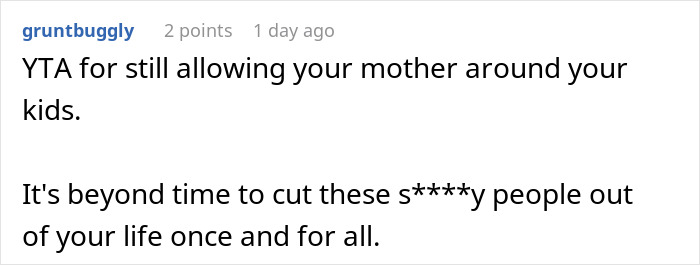You can’t choose your family, but you have a say in your relationships with them. A few days ago, Reddit user Fokaifemme shared her story on r/AITAH, detailing the fallout with her sister. For a long time, her sons had been bullied and harassed by their cousin and her friends in a deeply hurtful way. Despite the mom’s efforts to address the issue, her sibling met her with dismissal, and there was no resolution. Faced with a lack of accountability, the woman made the difficult decision to set firm boundaries—sparking years of tension that have recently reached a boiling point. So, she asked the internet to help her make sense of the whole ordeal.
Choosing family over family can be one of the most painful decisions a person has to make

Image credits: Daniel Martinez/Unsplash (not the actual photo)
Especially when others feel like they can pressure you into making one decision or another
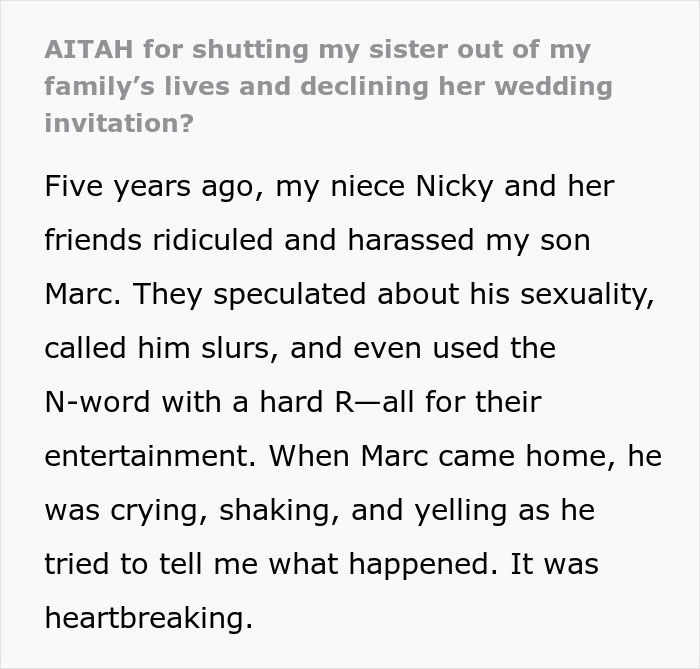

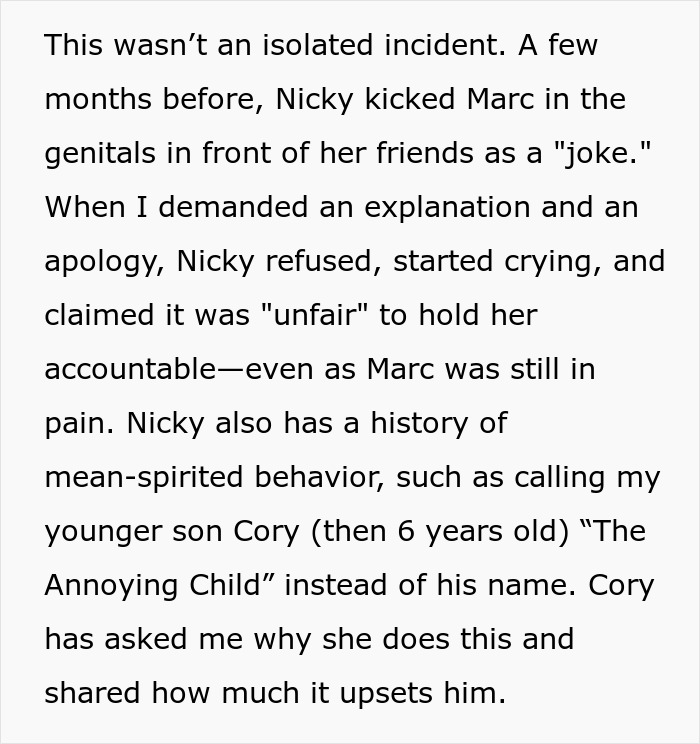
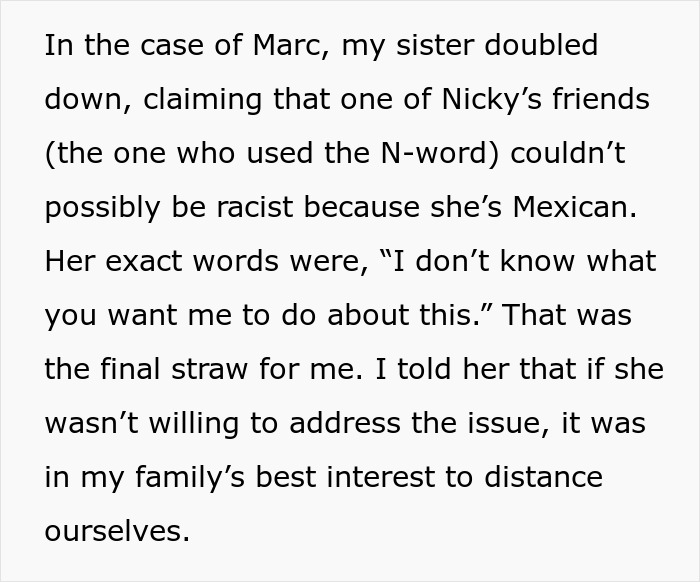

Image credits: Media_photos/Envato(not the actual photo)

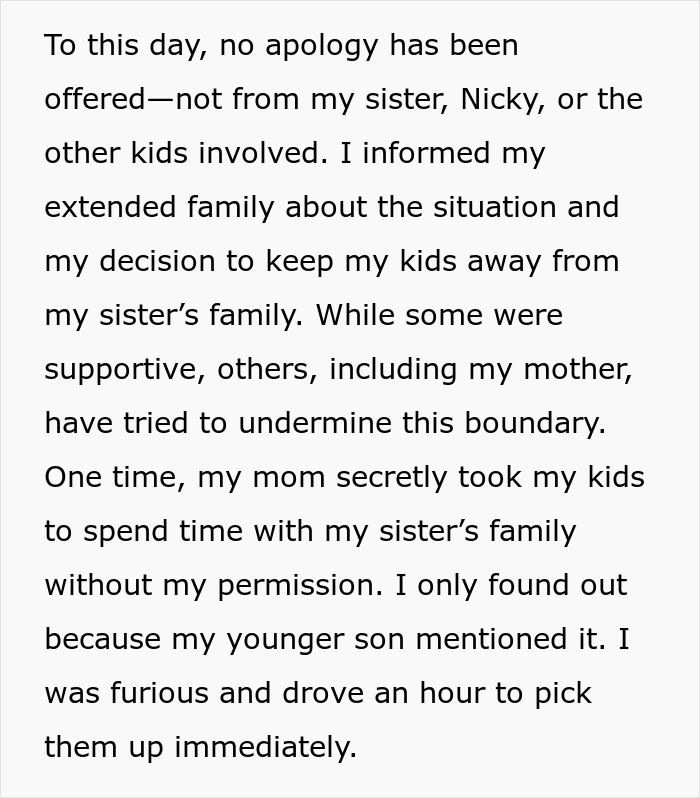
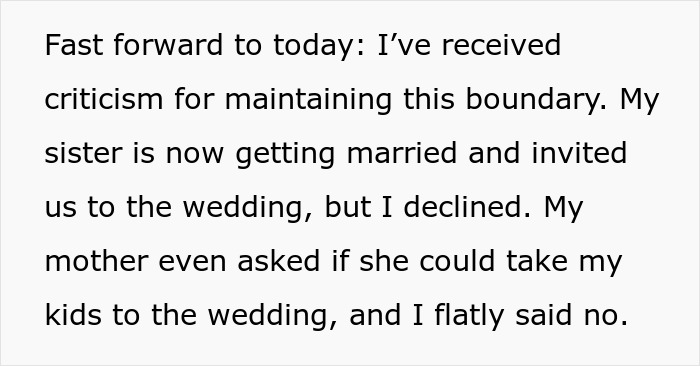
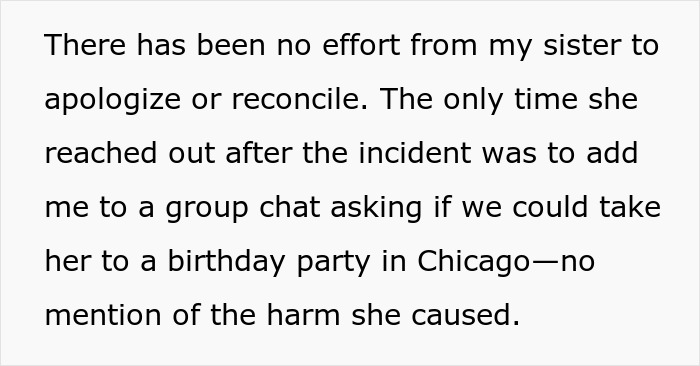

As her story went viral, the woman provided more context on her family’s situation
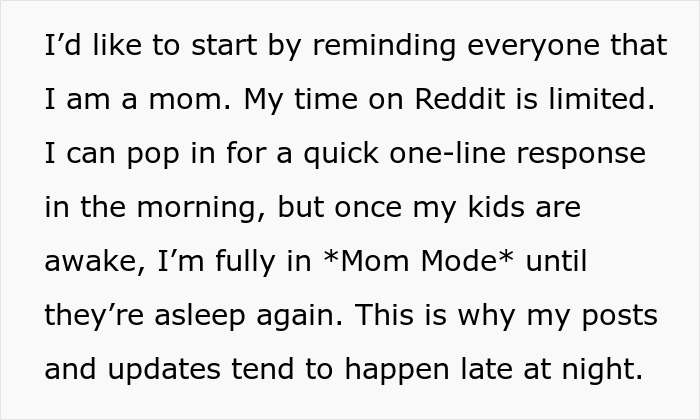

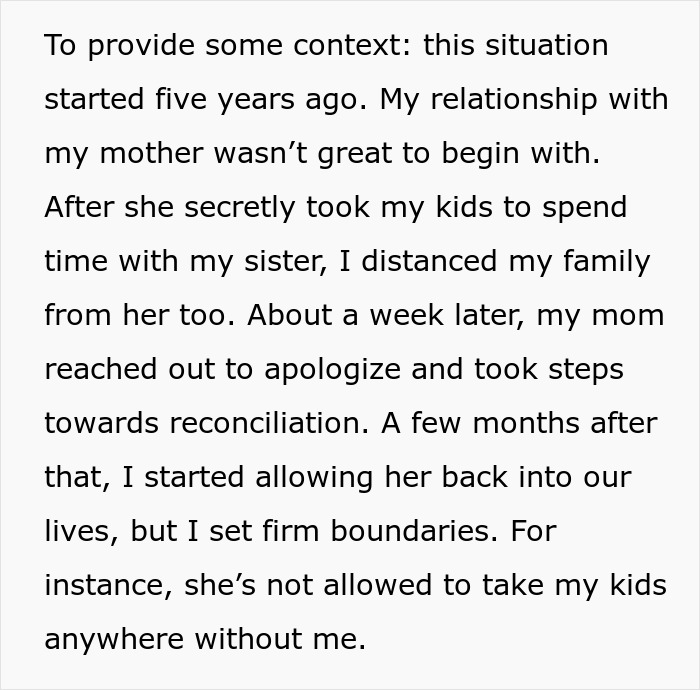
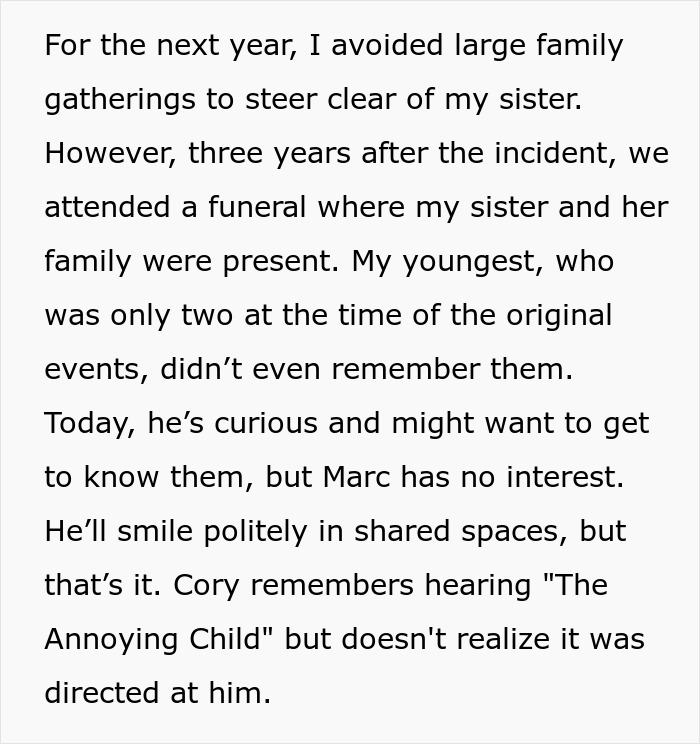
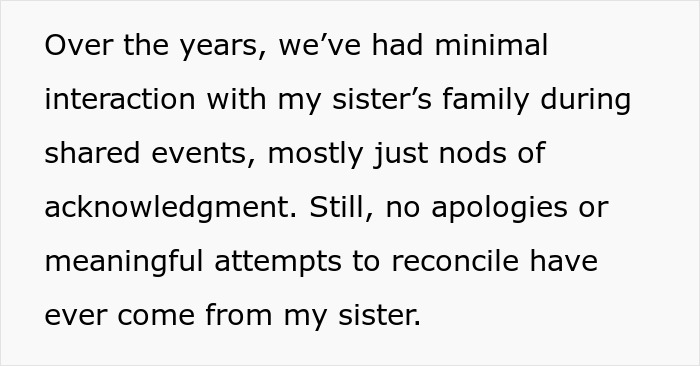

Image credits: Curated Lifestyle/Unsplash (not the actual photo)
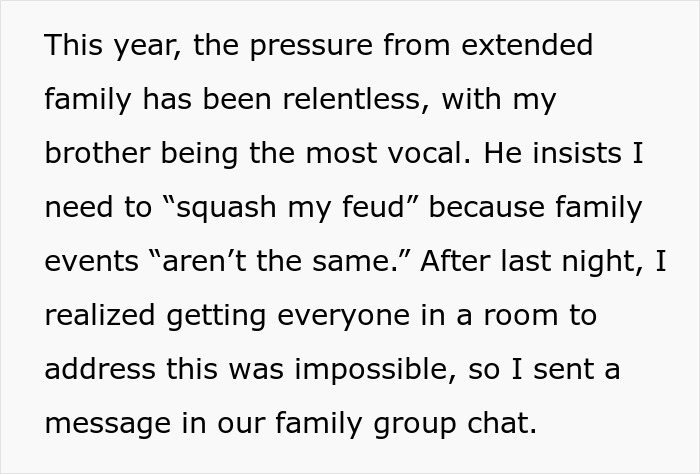
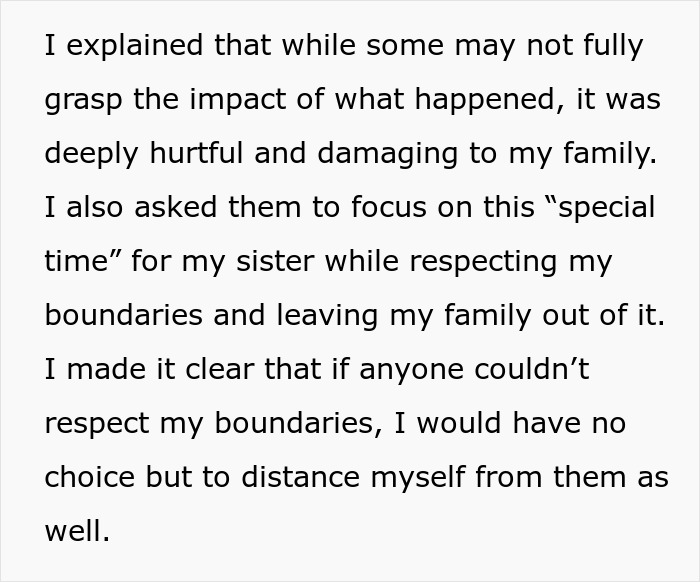
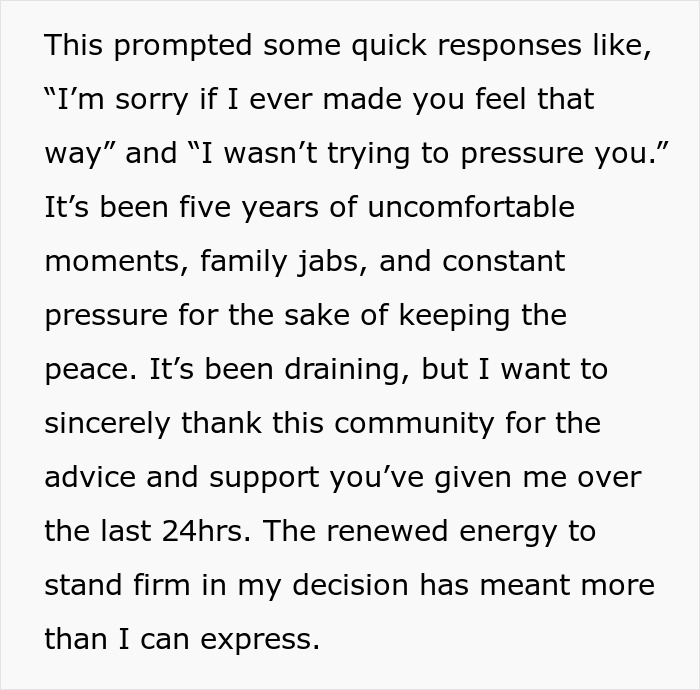

Image credits: fokaifemme
Around 29% of Americans are in a similar position as the woman
Family estrangement—the process by which family members become strangers to one another—is still somewhat taboo, but, that’s changing.
While there is no irrefutable data on whether estrangements are increasing or decreasing, some experts suggest that, with celebrities sharing their experiences, others may feel more comfortable divulging their own family struggles too.
“Families have always been complicated, and now we’re talking about it more,” says Lucy Blake, PhD, a senior lecturer in psychology at the University of the West of England in Bristol and author of the book No Family Is Perfect: A Guide to Embracing the Messy Reality.
People dealing with estrangement have been found to benefit from therapy in specific ways, including receiving warmth, validation, and safety, which may have been missing in their previous relationships; addressing the causes and resulting fallout from their estrangement; and also working on their relationship skills.

Image credits: Nini FromParis/Unsplash (not the actual photo)
One poll of over 11,000 Americans conducted in 2022 found that more than one in four Americans — 29% — report being estranged from an immediate family member, including siblings, parents, children, or grandparents. This number is slightly higher for men, with 31% reporting estrangement compared to 27% of women.
Also, people between the ages of 30 and 44 are the most likely age group analyzed to report estrangement from a family member, possibly because they are more likely to have family members in each of these categories.
Sexual orientation also appears to be a factor, with higher rates of estrangement reported by gay men (49%), lesbian women (55%), and bisexual people (38%) compared to heterosexuals (27%).
Whether or not you agree with the author of the post, at least the silver lining is that she’s taking a proactive approach to protect her children and work out the disagreements she’s been having with her relatives.
The mom also has addressed some of the questions people have had about the conflict

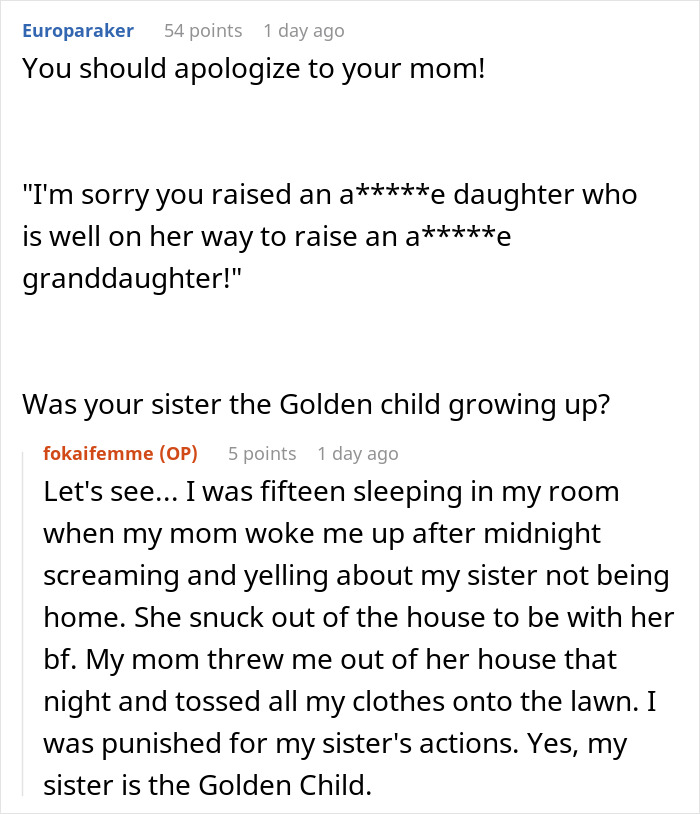
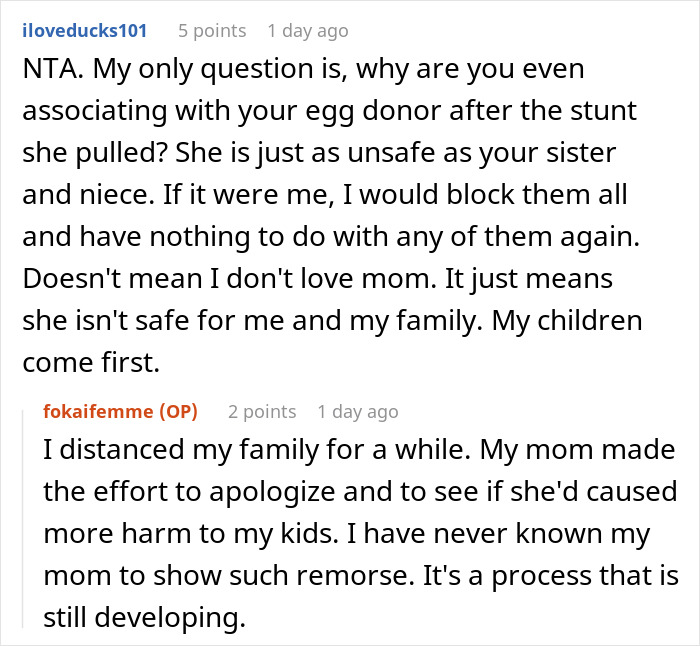
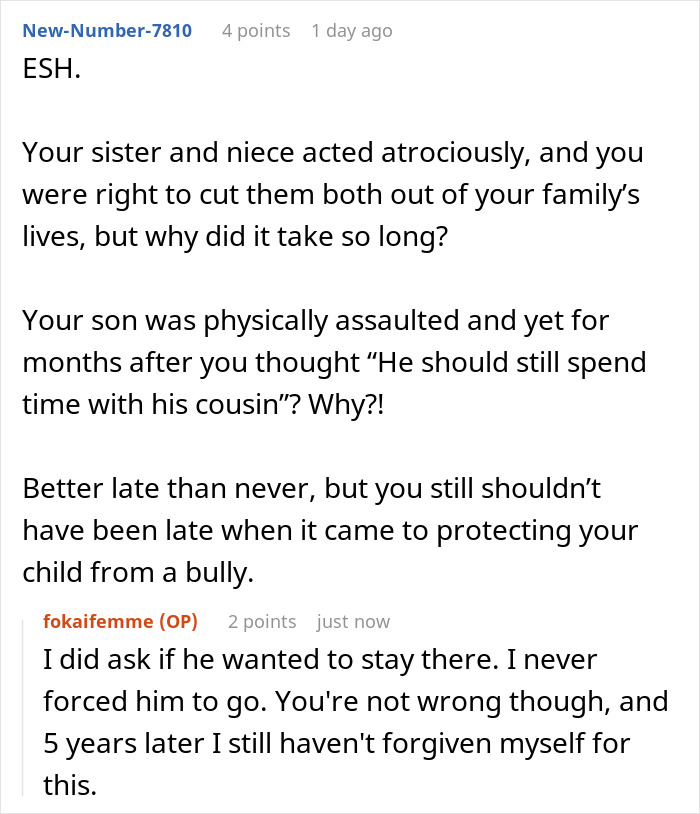
The majority expressed full support for her


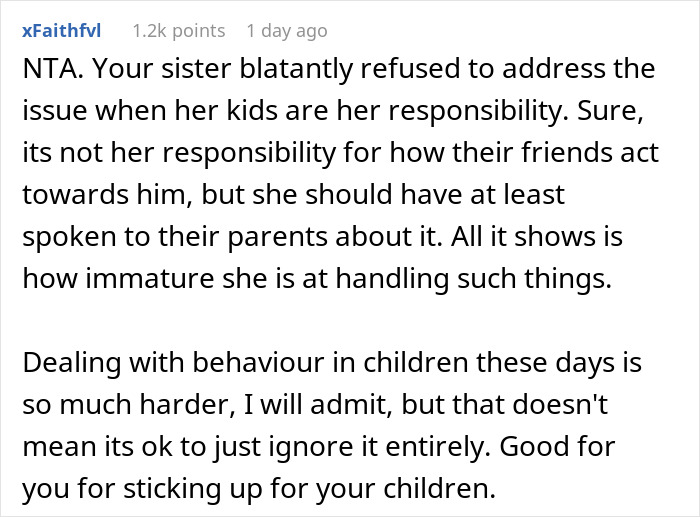
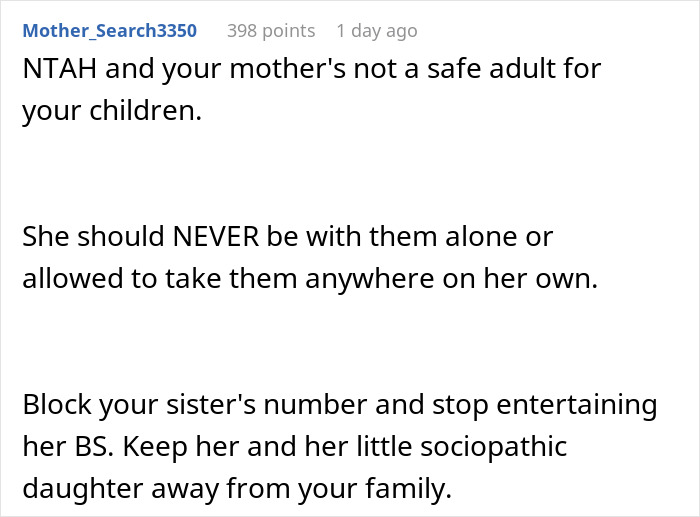
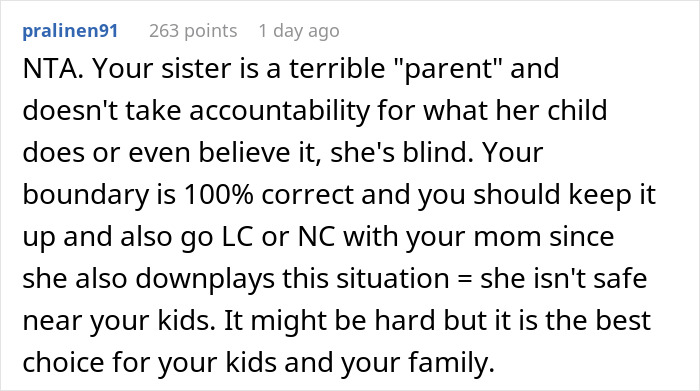
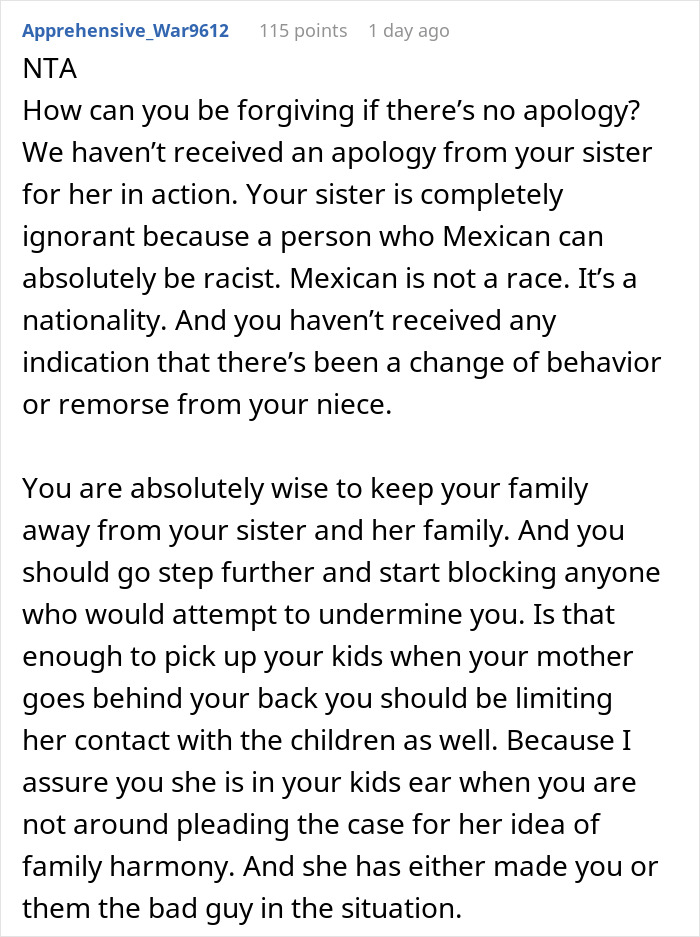

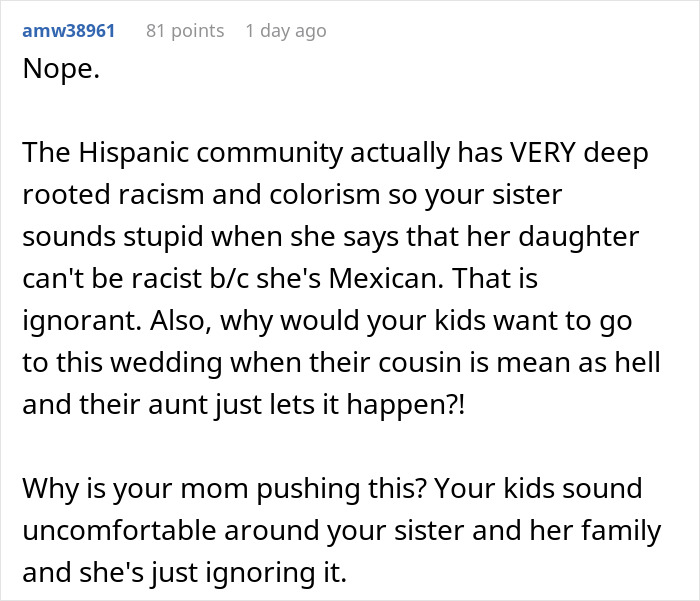

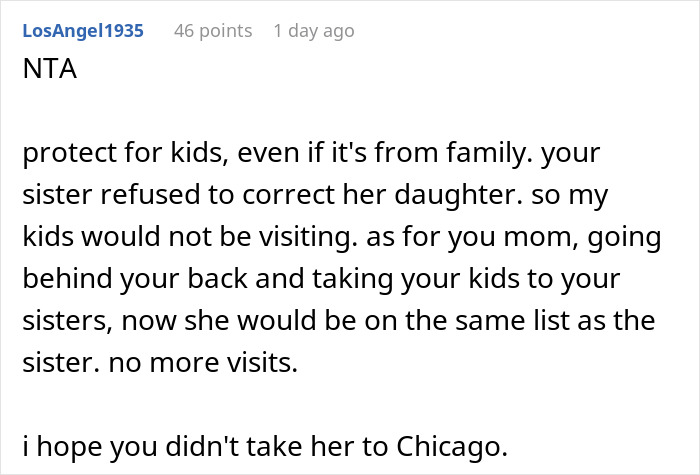
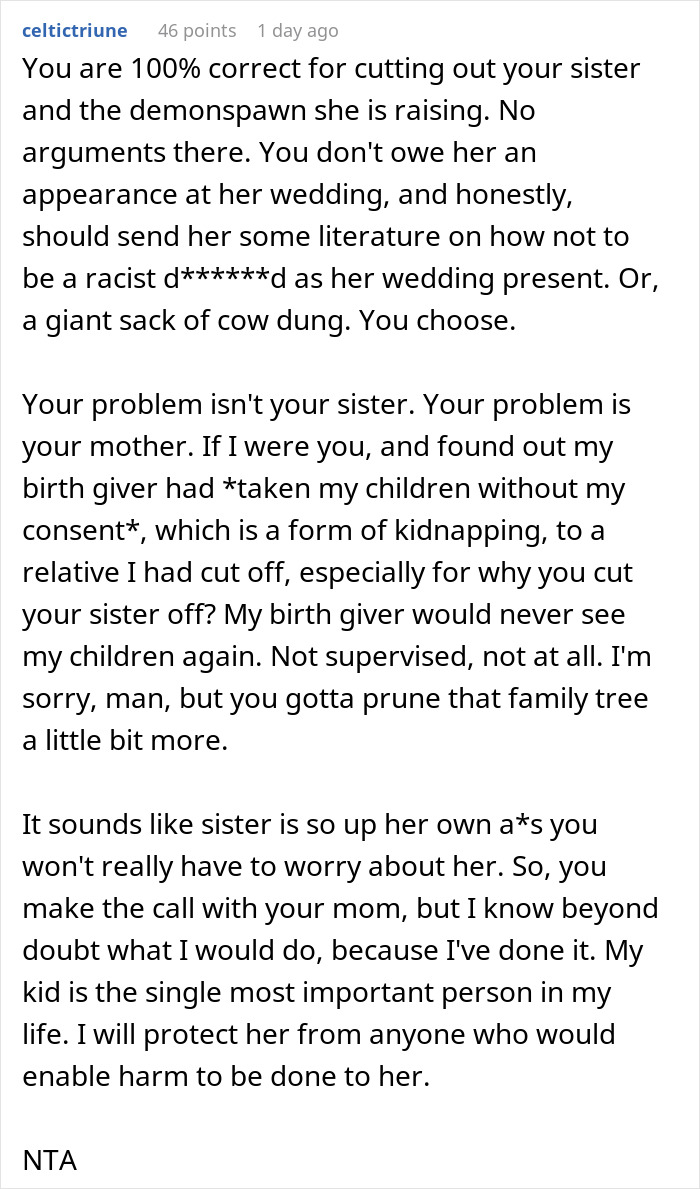



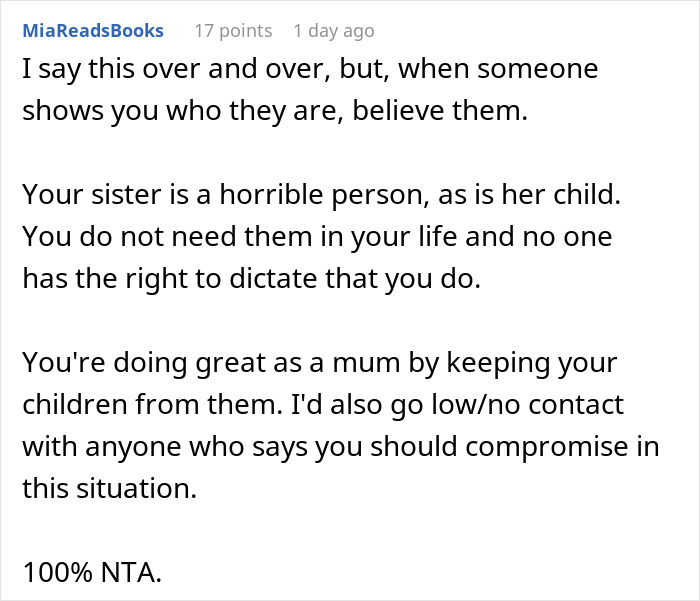
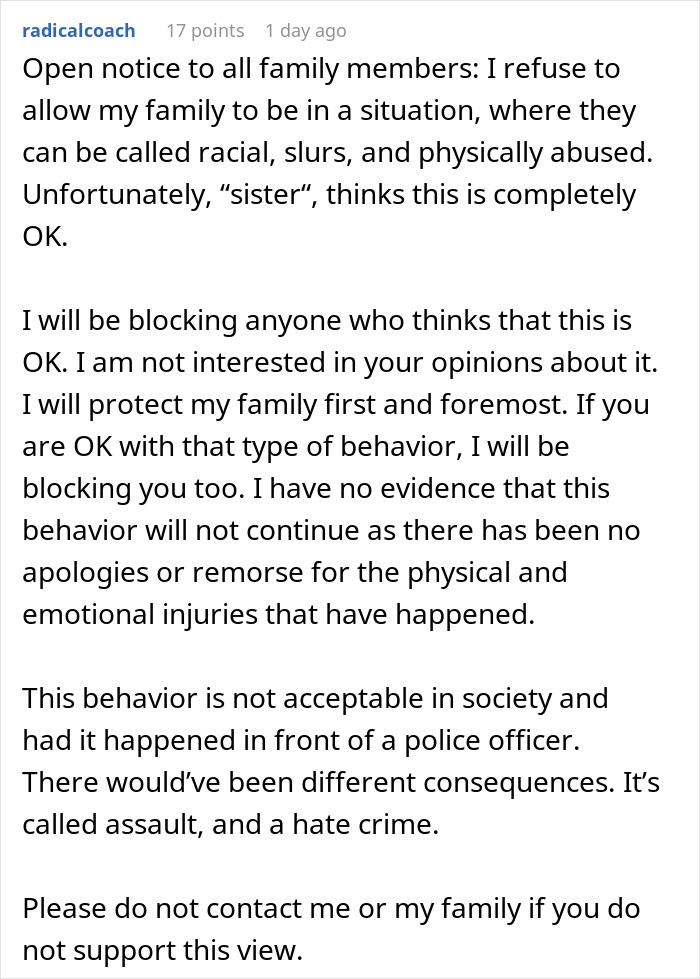
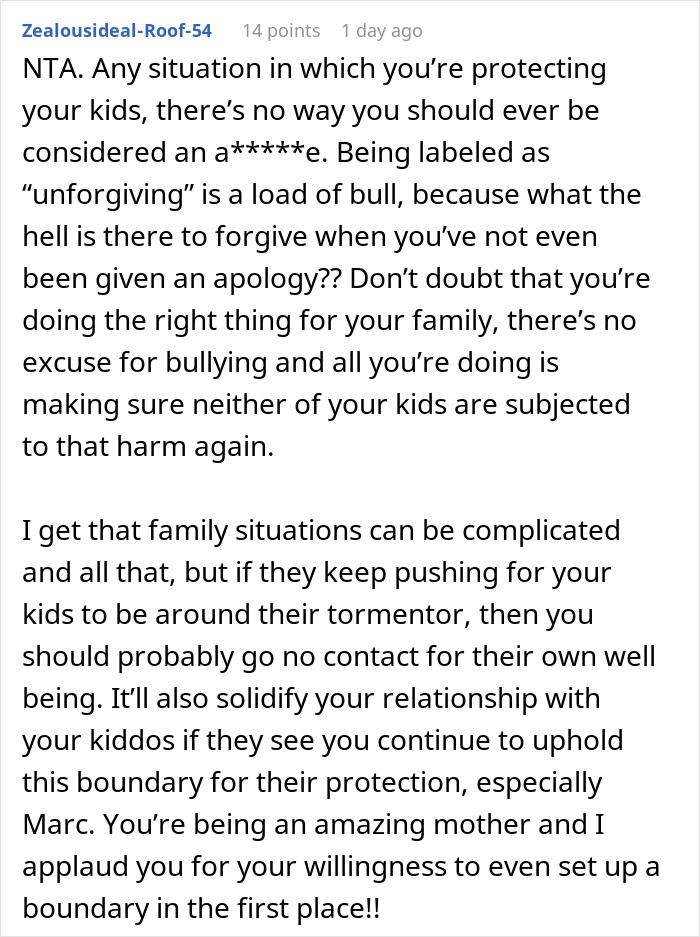
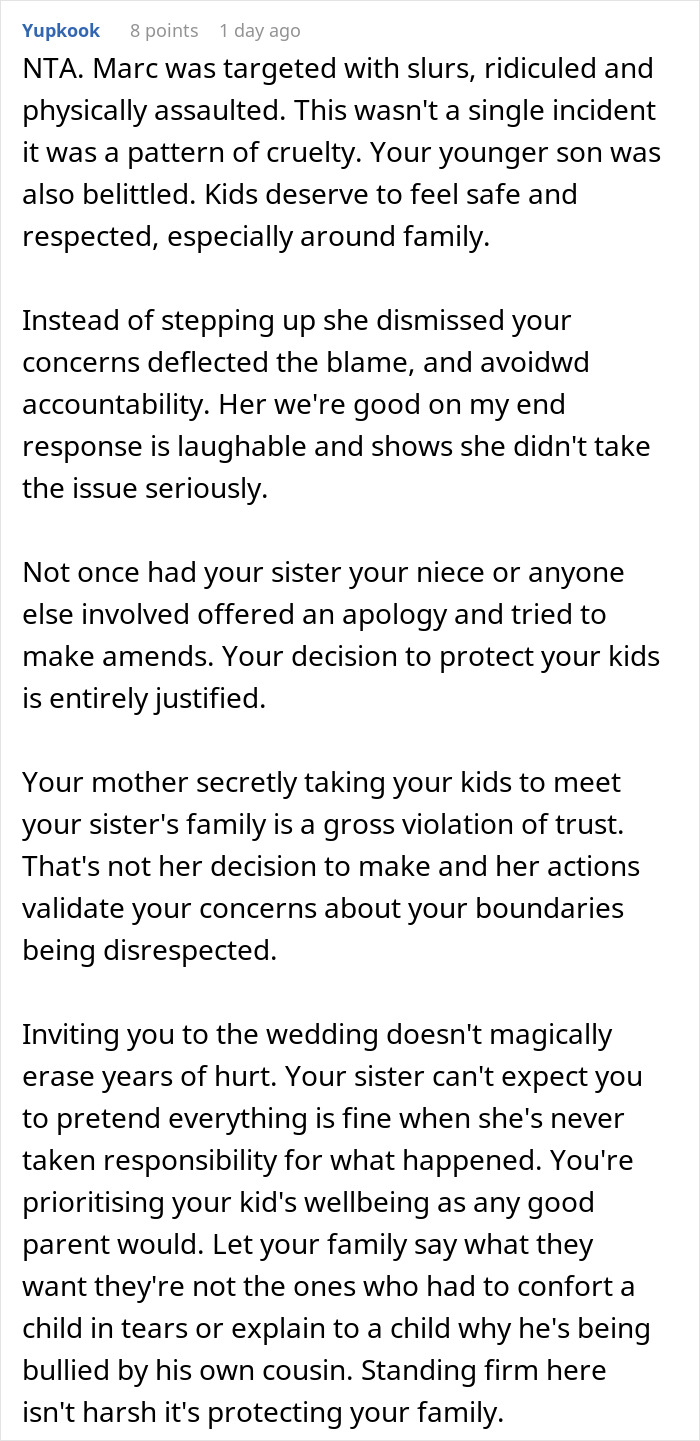

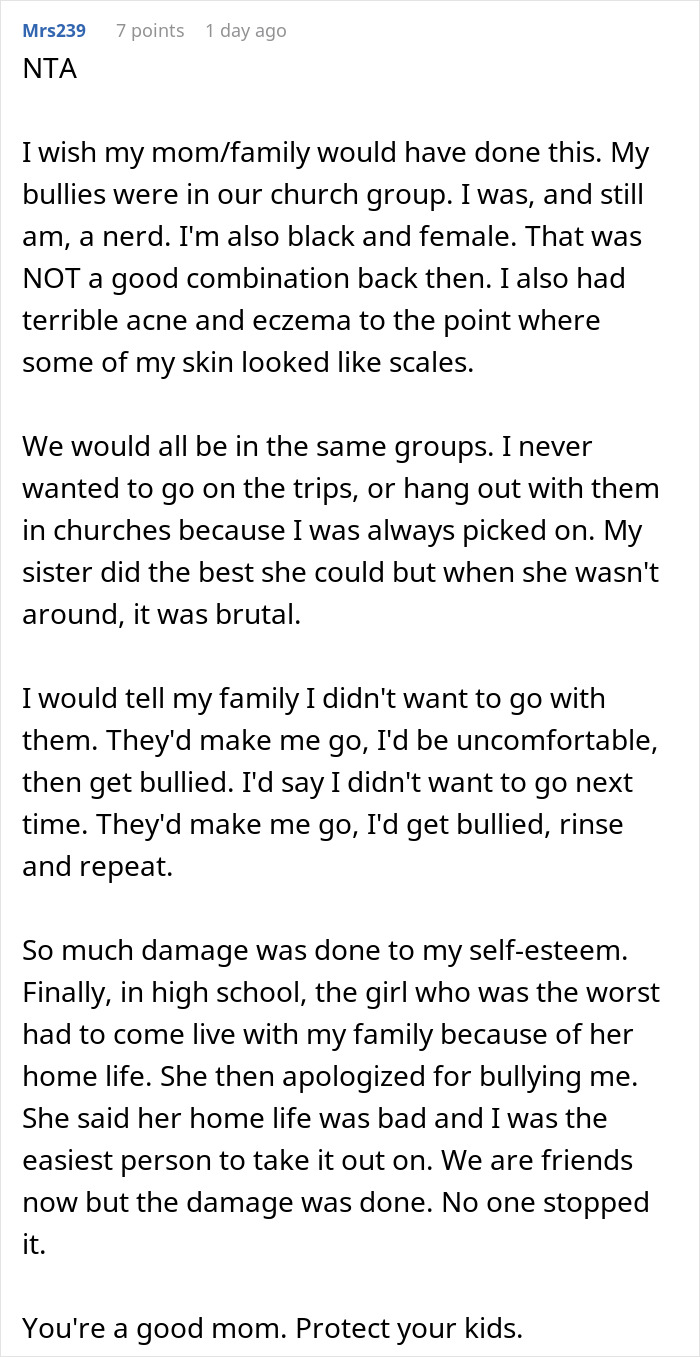
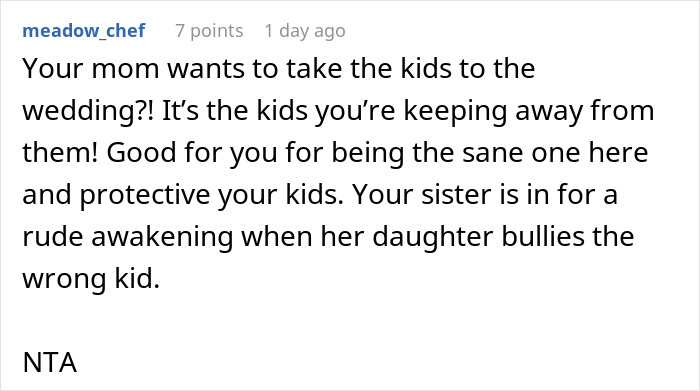
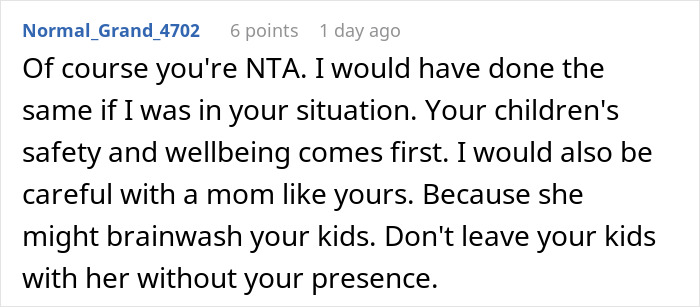
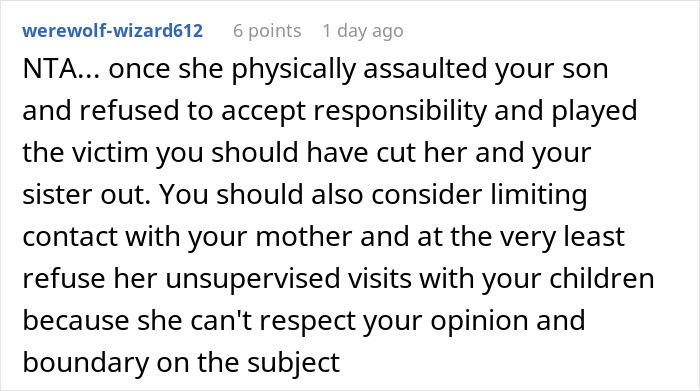
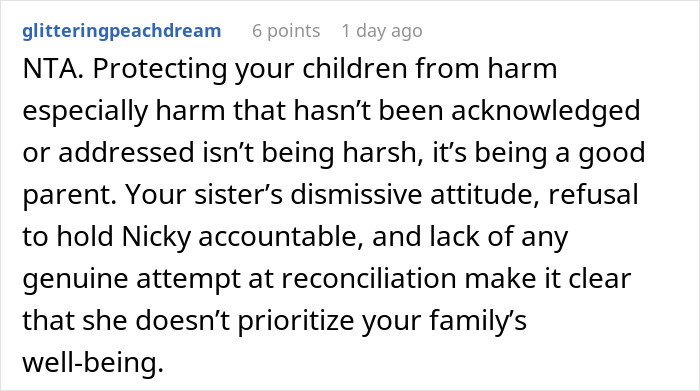

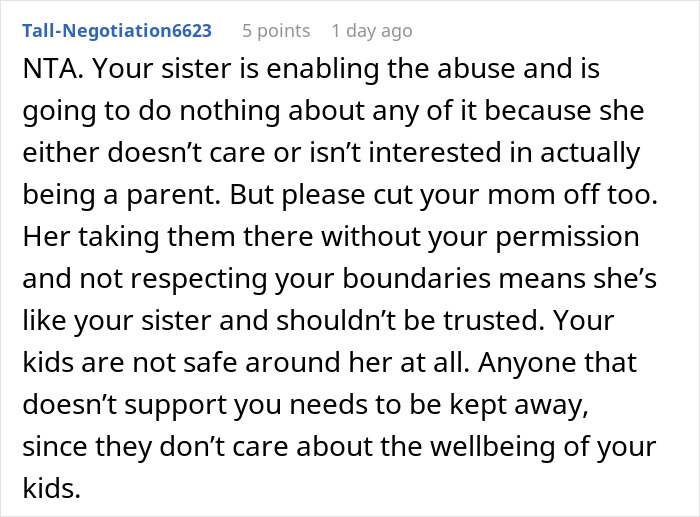
But some have been critical

